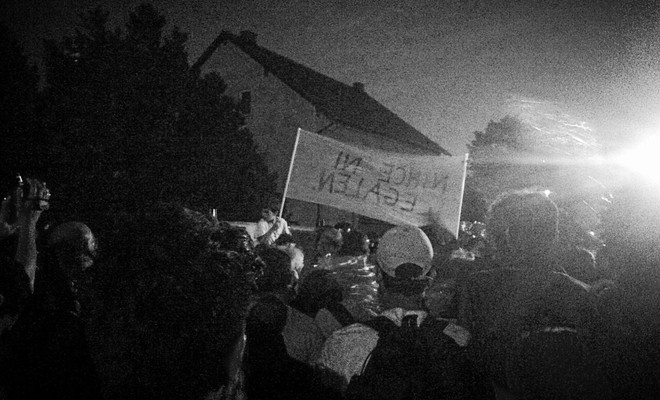SOLIDAR calls on the EU to live up to its value

As also highlighted in this morning’s President Juncker’s speech, the migration and refugee crisis is one of the most pressing issues for the EU at the moment. Although the tragedies in the Mediterranean involving people trying to reach the EU in search of protection and a better life have become a recurring horror in the last years, the phenomenon increased tremendously in the last month and involved also countries at the land borders of the EU and the Western Balkan region. EU coordinated human rights-based political responses are urgently needed and some of the points mentioned by President Juncker today represent important steps on which we can build.
We welcome the announced Commission’s initiative for a European asylum system, a coordinated European approach to migration and the mentioned need for a true commitment to tackle the root causes (See response by Conny Reuter to the State of the Union speech here), we call upon the EU and national leaders to deliver on the following points – especially on the occasion of the extraordinary Justice and Home Affairs Council to take place on 14 September in Brussels.
- The EU and its Member States have to ensure in its internal and external policies that migrants and refugees have access to their fundamental economic, social and cultural rights, as they are often in practice prevent from enjoying them.
- The EU has the responsibility to open safe and legal channels to the EU to provide concrete alternative to dangerous boat or land trips for people seeking international protection and a better life. EU leaders cannot continue neglecting that this is a crucial part of the debate.
- The EU needs to develop adequate tools to provide joint and coordinated responses to the humanitarian emergency within the EU territory that ensure solidarity among Member States that respect and promote fundamental rights.
- An urgent initiative is needed to replace the Dublin regulation with a system that focuses more on the respect and promotion of fundamental rights, foresees a more efficient responsibility-sharing mechanism and an improved harmonisation of protection standards.
- The EU should reverse the logic of austerity and invest more resources to provide adequate and quality healthcare, social services and education as well as instruments to facilitate the recognition of competences and qualifications of migrants to allow them to continue further education, and access labour market.
- Migration is a key component in the review of the European Neighborhood Policy; for that reason a rights-based approach to mobility and migration has to become an integral component of the new ENP in order to provide for a more coherent response linking Home and Foreign Affairs.
- With regards to development aid, rather than cutting budgets, the EU should encourage the ratification of UN Migrant Worker Convention as well as the ILO Conventions 97 and 143 on migrant workers and develop a cooperation policy based on the concrete implementation of the “more for more” approach, which aims at reinforcing the protection of human rights. Mobility partnerships agreements should not be limited to release visas to qualified workers only, but should provide third countries’ nationals with the opportunity to enter the EU.
- Reconsider the EU’s engagement with third countries, by building on existing relevant policy frameworks, such as the EU Action Plan on Human Rights and Democracy and the ENP, therefore contributing to provide a coherent response by linking Home and Foreign Affairs. At the same time, partnerships and agreements signed with countries, where frequent violations of the rights of migrants and refugees occur, should exclude readmission clauses.



